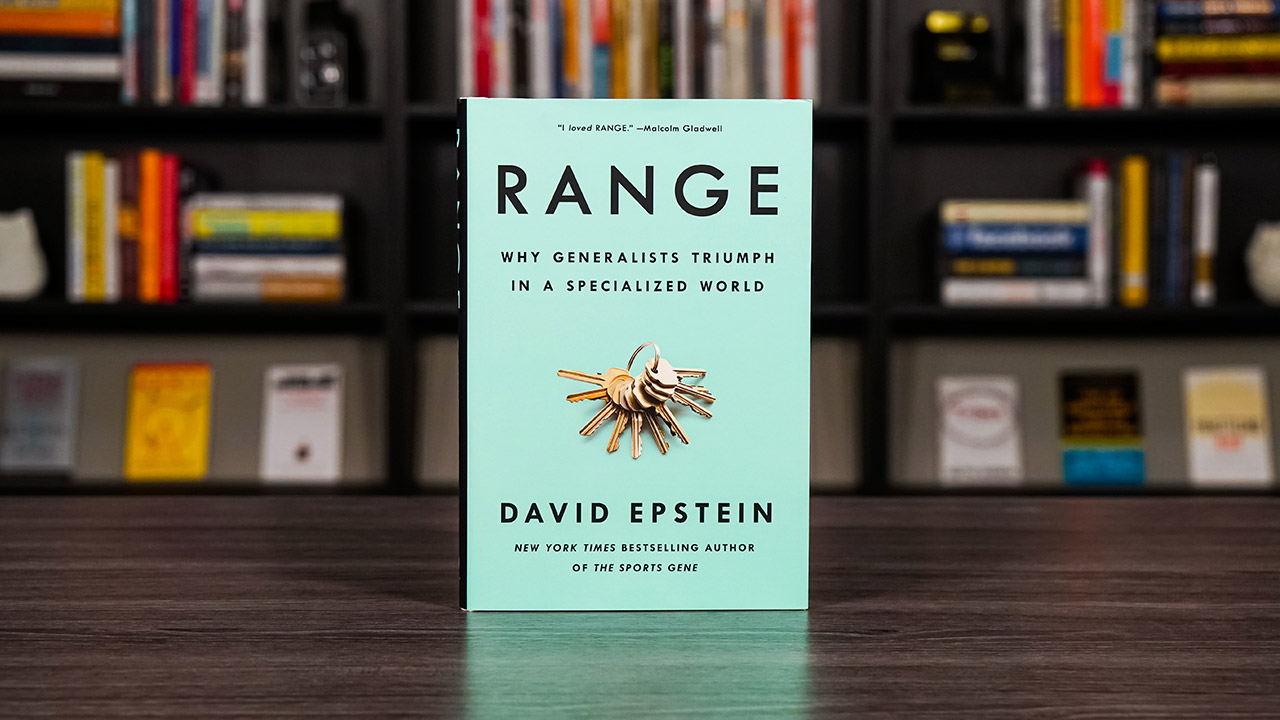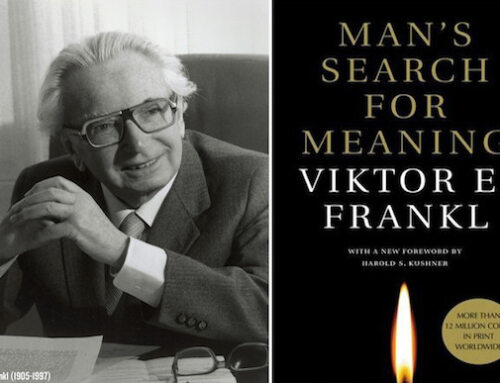This is a review of the book Range by David Epstein. For more book reviews, click the “BLOG” tab and select “BOOKS.”
Ever feel like you’re falling behind?
Maybe you had to change majors, switch careers, change sports or hobbies because of a physical injury or limitation. Or maybe you’re thinking about the switch, but you worry that it won’t be worth the risk. You’ve put all this time, money, and energy into the current thing.
Wouldn’t it be a waste to switch now?
In Range, David Epstein argues that said switches – or at least the variety and breadth of experience and knowledge that can come with them – could in fact prepare you for greater success long term than those who hunker down in one domain.
Hence the tagline, “Why Generalists Triumph in a Specialized World.” This holds true, he details with abundant research, across domains, serving as somewhat of a truism.
Those who change careers early often have better job performance than those who started in something early and stuck with it their whole lives; athletes who played different sports thrive in whatever athletic endeavour they find themselves in; likewise in academics and other areas. Short-term sacrifice of depth results in long-term benefit from breadth.
Range makes you adaptable, better at thinking “higher level”, and gives you a wider array of tools to use. So even if you are behind in a field for having started later, your breadth can give you what you need to get ahead fast and offer unique perspectives on old problems.
On the other hand, specialization has its grievances: when you pigeonhole yourself into one area without exposure to different ideas or skills, you naturally become limited. Everyone in your domain of expertise tends to think one way. Or you’ve become comfortable going through the motions, developing blind spots that someone from outside your domain would catch.
Epstein lets data do a lot of the arguing for him, but in all honesty, Range feels like one of those lessons that I always understood to be true, I just didn’t have the words for it. That doesn’t make the book unnecessary; quite the contrary, in a post-industrialist culture, this lesson is all the more important to relearn.
Freedom To Change
On a personal level, I found Range very freeing.
A few years ago I found myself with few apparent “hard” skills, working for a non-profit. I earned a kinesiology degree a few years prior. I knew my time working in the charity world was ending, or at least I feared it would when I realized I just wasn’t “in it” anymore. Moreover, I had been in a Masters of Theology, thinking I might go into ministry or church work or teaching. But deep down, the writing was on the wall.
I was going to be switching careers, and I worried I’d have nothing to use in other fields.
Was all this time spent for naught? Would I forever be behind my peers, many of whom stayed in their fields after university, building seniority at companies and establishing their resumes? How would I compare?
During an interview for a fitness coaching position, I realized that all my work in the non-profit world plus my kinesiology degree had set me up for success in ways I hadn’t imagined.
Speaking on a mic? No problem, I had led meetings and done seminars dozens of times. Outreach and public relations type work? Bread and butter when you work for charities.
Fast forward another couple of years and I was a unique breed of psychotherapist, equipped with a lifetime of holistic health and wellness knowledge and experience.
Moreover, unbeknownst to me, the breadth of work and knowledge – and perhaps the very act of pivoting and changing things up in life – had given me the ability to adapt to every patient who came into my office.
In other words, Range was supporting what I had already been learning, namely, my breadth of experience, while slowing me down in some ways short term, had been preparing me (and is still preparing me) for long-term success.
Something Greater
Range’s take-home messages are powerful, and the data used to support Epstein’s claims buttress the intuitive thesis. He also helps you connect the dots and understand what’s going on. In other words, why does breadth benefit us? Why exactly? How can I use this in my own life?
On the literary side, Epstein’s presentation is excellent. I never felt like he was beating a dead horse, even though most of the book revolves around the core thesis. He writes winsomely and concisely, short stories illustrating his point and bolstering the main idea. It reminded me somewhat of Charles Duhigg’s The Power of Habit. Accessible, practical, strong.
Enjoy the book – and be encouraged if you feel behind. All those life experiences, unrelated though they may seem, are preparing you for something greater.





